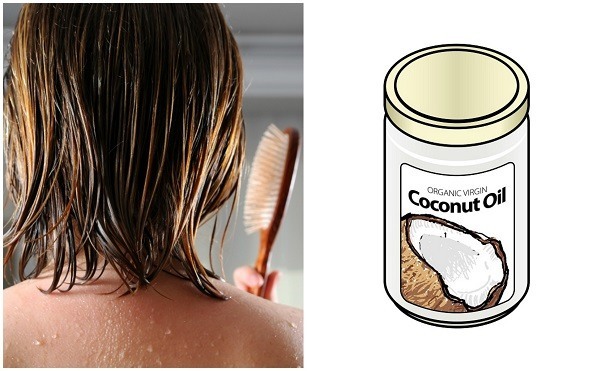Ready to leave?
Oops ! Condition name you have entered is invalid.
You are now leaving Aposbook.com and going to an external site managed by another organization.
Please confirm your email address and try to login again.
This account has been deleted. do you want to restore it?

Validate your email
A verification link will be sent to within the next 2 minutes. Please click it to validate your e mail.
*If you didn't get the link, please check your spam folder
Welcome to Aposbook,
As a registered user, you can benefit from the various free tools and services that we provide.
All you need to do is log in to start discussing with others, interacting, asking questions, and sharing your point of view about the various topics.
You can also write reviews and testimonials about any natural solution you have tried and share your experience. Your feedback can be very helpful.
If you are a health expert, you can add information about any topic or suggest text edit. You can also publish content, including articles and videos, about any topic from the related library section.
Together we can help.
The Aposbook Team
Forgot Password?
A validation link will be sent to you by email. Please confirm your address to log in
*If you didn't get the link, please check your spam folder
Please log in to use this feature
Your account has been suspended because you have violated our code of conduct. If you think this was a mistake, you can contact us by email at: support@aposbook.com "Contact us" form.
Success! Thank you for your feedback. Your contribution can make a difference. Together we can help each other.


Beauty and hygiene
Hair Health
Hair Health: Diagnosis, Protection, and Natural Treatments
Complete Guide to Hair Health
Overview of Hair Health
Hair health is a reflection of overall well-being, encompassing not just physical, but also emotional and psychological aspects. Hair, composed primarily of a protein called keratin, grows from follicles found in the scalp and goes through a continuous cycle of growth, rest, and shedding. On average, humans have around 100,000 hair follicles on the scalp, each producing a single strand of hair.
As we age, our hair undergoes several changes:
- Graying: Graying hair is usually ...
Overview of Hair Health
Hair health is a reflection of overall well-being, encompassing not just physical, but also emotional and psychological aspects. Hair, composed primarily of a protein called keratin, grows from follicles found in the scalp and goes through a continuous cycle of growth, rest, and shedding. On average, humans have around 100,000 hair follicles on the scalp, each producing a single strand of hair.
As we age, our hair undergoes several changes:
- Graying: Graying hair is usually the first noticeable sign of aging, often beginning in a person's 30s or 40s, but this varies widely. The reduction in melanin production causes hair to lose its color, resulting in gray, silver, or white hair. Genetics play a significant role in when and how fast this happens.
- Thinning: Hair thinning can occur around the same time or after graying begins, but it is more influenced by hormonal changes, especially during menopause for women or due to androgenetic alopecia (pattern baldness) in men. Thinning happens as hair follicles shrink over time, producing finer, weaker strands and shortening the growth phase.
- Texture Changes: Hair texture changes are often a later-stage effect of aging. Hair can become more brittle, dry, and coarse, primarily due to reduced oil production from the scalp and changes in keratin structure. Environmental factors such as UV exposure or chemical treatments can accelerate these changes.
Hair Health problems
Besides hair thinning, hair health problems can manifest in various ways, including:
- Hair dryness: Hair lacks moisture, becoming brittle and prone to breakage, making it more vulnerable to damage.
- Hair loss (alopecia): Can result in bald patches or excessive shedding, often due to genetics, hormonal changes, or other underlying conditions.
- Split ends: Caused by damaged hair fibers that fray and split at the tips, leading to a rough and unhealthy look.
- Dandruff: Leads to an itchy, flaky scalp due to excessive skin shedding, which can be embarrassing and uncomfortable.
- Frizziness: Happens when the hair cuticles are raised, making the hair tangle easily and lose its smoothness.
- Scalp infections or psoriasis: Conditions that cause inflammation, itching, and irritation, further contributing to poor hair health.
Causes of Hair Health Problems
Several factors can disrupt the balance of healthy hair, leading to issues such as hair loss, breakage, or thinning. Understanding these causes is essential for prevention and proper care.
- Genetics: Family history plays a key role in determining hair type and the likelihood of hair loss conditions like male or female pattern baldness.
- Hormonal imbalances: Fluctuations in hormones, especially during pregnancy, menopause, or thyroid issues, can lead to hair thinning or loss.
- Nutrient deficiencies: Lack ...
Causes of Hair Health Problems
Several factors can disrupt the balance of healthy hair, leading to issues such as hair loss, breakage, or thinning. Understanding these causes is essential for prevention and proper care.
- Genetics: Family history plays a key role in determining hair type and the likelihood of hair loss conditions like male or female pattern baldness.
- Hormonal imbalances: Fluctuations in hormones, especially during pregnancy, menopause, or thyroid issues, can lead to hair thinning or loss.
- Nutrient deficiencies: Lack of essential vitamins and minerals such as iron, zinc, and vitamin D can weaken hair follicles and impede growth.
- Stress: Both physical and emotional stress can push hair into the shedding phase, leading to temporary hair loss.
- Scalp conditions: Issues like dandruff, psoriasis, or fungal infections disrupt hair health and cause breakage or slow growth.
- Chemical treatments: Overuse of hair dyes, bleaches, or heat styling tools can damage the hair shaft, leading to brittleness and split ends.
Risk Factors for Hair Health Issues
Certain risk factors can make individuals more susceptible to hair problems. These factors may not directly cause hair issues but can increase the likelihood of experiencing them.
- Age: As people age, the hair's growth cycle slows, leading to thinning or hair loss.
- Gender: Men are more likely to experience androgenic alopecia (male-pattern baldness), while women may face thinning due to hormonal changes.
- Smoking: Cigarette smoke damages hair follicles, reducing blood flow to the scalp ...
Risk Factors for Hair Health Issues
Certain risk factors can make individuals more susceptible to hair problems. These factors may not directly cause hair issues but can increase the likelihood of experiencing them.
- Age: As people age, the hair's growth cycle slows, leading to thinning or hair loss.
- Gender: Men are more likely to experience androgenic alopecia (male-pattern baldness), while women may face thinning due to hormonal changes.
- Smoking: Cigarette smoke damages hair follicles, reducing blood flow to the scalp, which can lead to hair thinning.
- Poor diet: Diets lacking in protein or vital nutrients make hair more prone to breakage and slow growth.
- Sun exposure: Overexposure to UV rays can damage hair shafts, making hair dry and fragile.
- Medication: Certain drugs, including chemotherapy, antidepressants, and blood pressure medications, may contribute to hair loss as a side effect.
Symptoms of Hair Health Problems
Identifying the symptoms of hair health issues early can prevent further damage and allow for prompt treatment.
- Thinning hair: A gradual reduction in hair density, often most noticeable at the crown or along the hairline.
- Excessive shedding: Losing more than the typical 50-100 hairs per day may indicate a hair health problem.
- Brittle or dry hair: Hair that breaks easily, feels dry to the touch, or lacks shine is a sign of damage.
- Itchy or ...
Symptoms of Hair Health Problems
Identifying the symptoms of hair health issues early can prevent further damage and allow for prompt treatment.
- Thinning hair: A gradual reduction in hair density, often most noticeable at the crown or along the hairline.
- Excessive shedding: Losing more than the typical 50-100 hairs per day may indicate a hair health problem.
- Brittle or dry hair: Hair that breaks easily, feels dry to the touch, or lacks shine is a sign of damage.
- Itchy or flaky scalp: Persistent scalp itching or flaking may be a symptom of dandruff or an underlying skin condition.
- Bald spots: Small or large areas of the scalp that appear bald may be a sign of alopecia or other hair disorders.
- Slow hair growth: Noticeably slower hair growth, which can stem from nutrient deficiencies or underlying health conditions.
Hair Health diagnosis
Diagnosing hair health problems involves identifying the root cause of symptoms through various methods. Early detection can help manage or reverse damage effectively.
- Physical examination: A dermatologist may examine the scalp and hair to check for conditions like dandruff, infections, or hair shaft abnormalities.
- Blood tests: These are used to detect any underlying hormonal imbalances or nutrient deficiencies, such as low iron or thyroid issues.
- Hair pull test: Gently pulling on small sections of hair can reveal ...
Hair Health diagnosis
Diagnosing hair health problems involves identifying the root cause of symptoms through various methods. Early detection can help manage or reverse damage effectively.
- Physical examination: A dermatologist may examine the scalp and hair to check for conditions like dandruff, infections, or hair shaft abnormalities.
- Blood tests: These are used to detect any underlying hormonal imbalances or nutrient deficiencies, such as low iron or thyroid issues.
- Hair pull test: Gently pulling on small sections of hair can reveal how much hair is shedding and help diagnose conditions like telogen effluvium.
- Scalp biopsy: In more severe cases, a small scalp sample is taken for laboratory analysis to identify issues like autoimmune disorders affecting hair health.
- Dermatoscopy: This tool magnifies the scalp, allowing the doctor to see the hair follicles more clearly and detect conditions like scalp infections or psoriasis.
Natural Treatments for Hair
There are several natural remedies that can help improve hair health and reduce hair damage. These natural solutions aim to nourish the hair from within, promoting strength and growth. Click on natural treatments for hair to find all the natural solutions to improve hair health, including various natural therapies, diet programs, alternative medicine, vitamins, supplements, herbal medicine, and home remedies. You can also go to www.aposbook.com to find all natural treatments for any medical ...
Natural Treatments for Hair
There are several natural remedies that can help improve hair health and reduce hair damage. These natural solutions aim to nourish the hair from within, promoting strength and growth. Click on natural treatments for hair to find all the natural solutions to improve hair health, including various natural therapies, diet programs, alternative medicine, vitamins, supplements, herbal medicine, and home remedies. You can also go to www.aposbook.com to find all natural treatments for any medical condition IN ONE CLICK.
Some of the most common natural solutions for hair health include:
Diet Programs
- Mediterranean Diet: Emphasizes fruits, vegetables, whole grains, and healthy fats, providing essential nutrients that promote hair strength and growth.
- Plant-Based Diet: Rich in vitamins and antioxidants from various plant sources, supporting scalp health and reducing oxidative stress.
Herbal Medicine
- Rosemary: Known for stimulating hair follicles and promoting hair growth. It may also improve scalp circulation.
- Nettle: Rich in vitamins and minerals, it can help strengthen hair and improve scalp health.
- Hibiscus: Often used to promote hair growth and prevent premature graying due to its high vitamin C content.
- Saw Palmetto: Believed to inhibit DHT, a hormone linked to hair loss, potentially promoting thicker hair.
Vitamins and Supplements
- Biotin: A key vitamin for hair health that supports keratin production, leading to stronger and healthier hair.
- Vitamin D: Plays a role in hair follicle cycling, and its deficiency is linked to hair loss.
- Omega-3 Fatty Acids: Essential fats that nourish the scalp and help reduce inflammation, contributing to healthier hair.
Alternative Medicine
- Acupuncture: May improve blood flow to the scalp, promoting hair growth and health.
- Aromatherapy: Using essential oils such as lavender or peppermint can stimulate hair growth and provide a soothing effect on the scalp.
Medical Treatment for Hair Health
Medical treatments for hair health target the underlying causes of hair loss or damage through pharmaceutical solutions or procedures. These treatments are generally recommended for more severe cases of hair health problems.
- Minoxidil: A topical treatment used to stimulate hair growth and slow down hair loss, especially in cases of androgenetic alopecia.
- Finasteride: An oral medication commonly prescribed for men with male-pattern baldness to block the hormone responsible for hair loss.
- Corticosteroid injections: These injections ...
Medical Treatment for Hair Health
Medical treatments for hair health target the underlying causes of hair loss or damage through pharmaceutical solutions or procedures. These treatments are generally recommended for more severe cases of hair health problems.
- Minoxidil: A topical treatment used to stimulate hair growth and slow down hair loss, especially in cases of androgenetic alopecia.
- Finasteride: An oral medication commonly prescribed for men with male-pattern baldness to block the hormone responsible for hair loss.
- Corticosteroid injections: These injections are used to treat hair loss related to autoimmune conditions like alopecia areata by reducing inflammation at the follicle level.
- Laser therapy: Low-level laser therapy is sometimes used to stimulate hair follicles and promote hair growth.
- Hair transplant surgery: In severe cases of hair loss, hair transplant surgery can relocate hair follicles from other parts of the body to the scalp, creating a fuller appearance.
Frequently Asked Questions About Hair Health
What are the common causes of hair problems?
Common causes include genetic factors, hormonal changes, nutritional deficiencies, stress, and environmental factors like pollution and heat styling.
How can I tell if I’m experiencing hair thinning?
Signs of hair thinning may include a wider part, visible scalp, or an increase in hair fall while brushing or washing your hair.
What are the early signs of hair loss?
Early signs include receding hairlines, thinning areas on ...
Frequently Asked Questions About Hair Health
What are the common causes of hair problems?
Common causes include genetic factors, hormonal changes, nutritional deficiencies, stress, and environmental factors like pollution and heat styling.
How can I tell if I’m experiencing hair thinning?
Signs of hair thinning may include a wider part, visible scalp, or an increase in hair fall while brushing or washing your hair.
What are the early signs of hair loss?
Early signs include receding hairlines, thinning areas on the scalp, and noticing more hair in your brush or on your pillow.
Can dietary changes improve hair health?
Yes, a balanced diet rich in vitamins, minerals, and healthy fats can significantly enhance hair strength, growth, and overall health.
What natural treatments can help promote hair growth?
Natural treatments include herbal remedies like rosemary and nettle, dietary changes, and supplements such as biotin and omega-3 fatty acids.
Is it effective to use essential oils for hair health?
Essential oils like peppermint and lavender can stimulate hair growth and improve scalp health when used in massages or added to hair products.
How long does it take to see results from natural treatments for hair health?
Results can vary, but many people may start to see improvements within 3 to 6 months of consistent use of natural treatments and dietary changes.
Are there any side effects of using herbal remedies for hair?
While generally safe, some individuals may experience allergic reactions or irritation. It's advisable to perform a patch test before using new products.
Can stress contribute to hair problems?
Yes, high levels of stress can trigger hair loss conditions like telogen effluvium, where hair follicles enter a resting phase prematurely.
How often should I wash my hair to maintain its health?
The frequency of washing depends on hair type and personal preference. Generally, washing 2-3 times a week is suitable for most hair types, but those with oily hair may need more frequent washing.
Natural Treatments for Hair Health
Hair Health Dos and Don'ts
Proper nutrition is crucial for maintaining healthy hair, as the food we consume provides the essential vitamins, minerals, and nutrients that support hair growth and strength.
Library center Hair Health
Success storiess

Hair Growth Beauty Secret: Coconut Oil

I USED AYURVEDA for 1 YEAR w/ Pictures And THIS Is What HAPPENED | Natural Hair

Growing My Edges Back With Zinc
































[0]